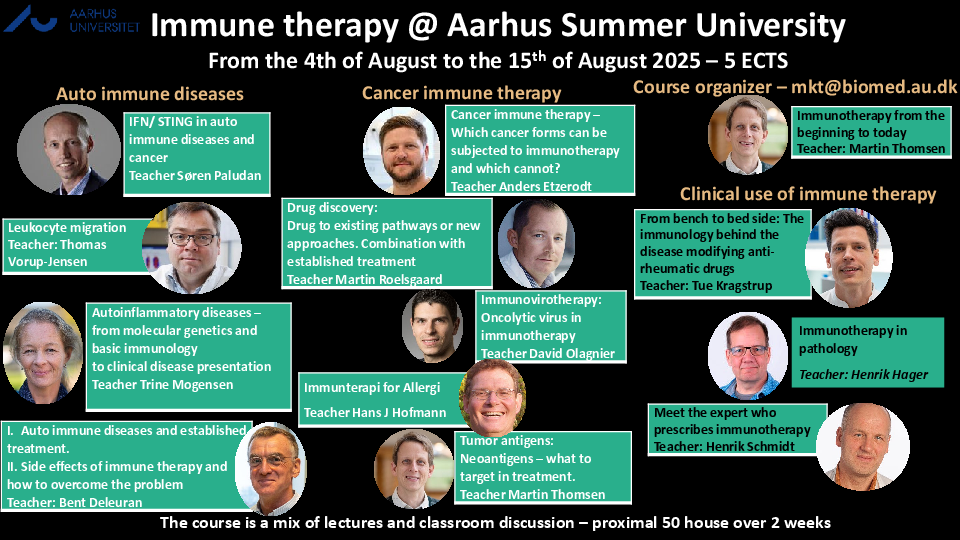
Immunotherapy has gained clinical importance in recent years, primarily as a result of advancement in cancer treatment and modulation of inflammatory diseases. Immunotherapy means modulating the immune response either through enhancement or repression of the patient’s immune system. A wide range of new drugs that modulate the immune system are under development, and they all share the advantage of specific action on a single target. This increases therapeutic safety and reduces side effects comparing to traditional treatment options.
This course aims to evaluate modern immunotherapy and the future perspective of immune modulation. We will focus on the two axes of immunotherapy – enhancement of immune activity as is often used to treat cancer, and inhibition of immune activation as is done in treatment of inflammatory disease. The course will introduce different diseases with potential for immunotherapy. This includes different common types of cancer and inflammatory disease, but also rare immunodeficiencies, with well-described genetic origins. The mechanisms of action of the immunotherapies will be discussed in details including antibody-based therapies, T-cell-directed therapy, and small molecule inhibitors of specific signalling pathways.
Exam info and full course description can be found in the course catalogue.
Please notice that this course is passed by active participation, and you will not receive a specific grade. Only pass/fail will appear on your transcript.
Course specific:
To apply for the course you must have passed a relevant Bachelor's degree.
The course is based on the immunology classes from the bachelor’s degree in medicine and participants need a certain knowledge within this field. If you haven't had any courses within immunology, you cannot be accepted to the course.
The course is primarily intended for medical students, molecular medicine, molecular biologist or equivalent.
General:
Exchange Students: nomination from your home university
Freemovers: documentation for English Language proficiency
You can read more about the admission here
